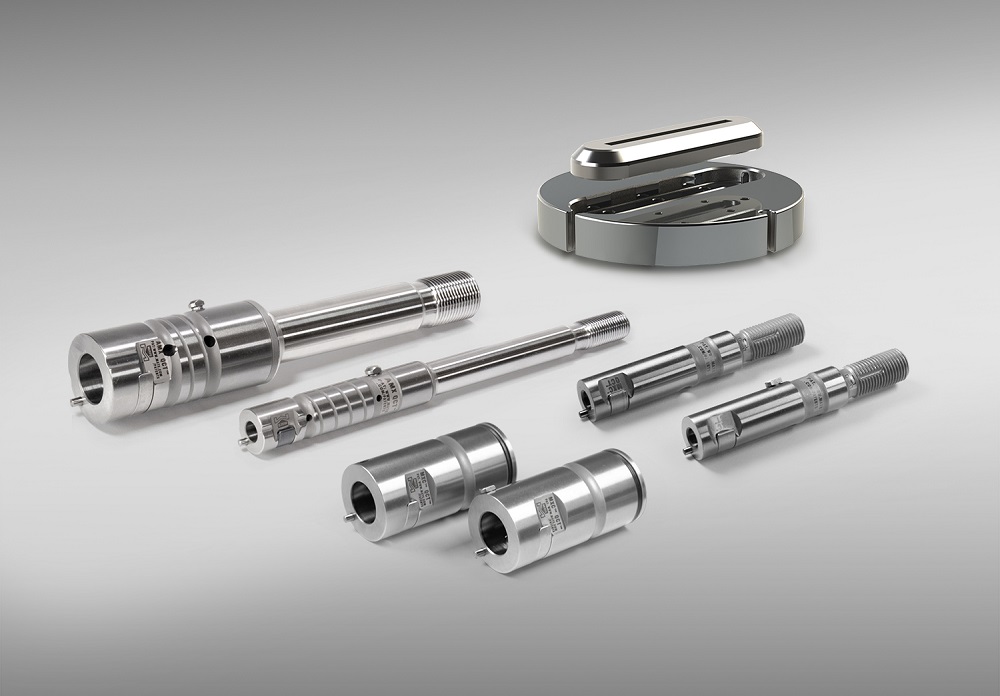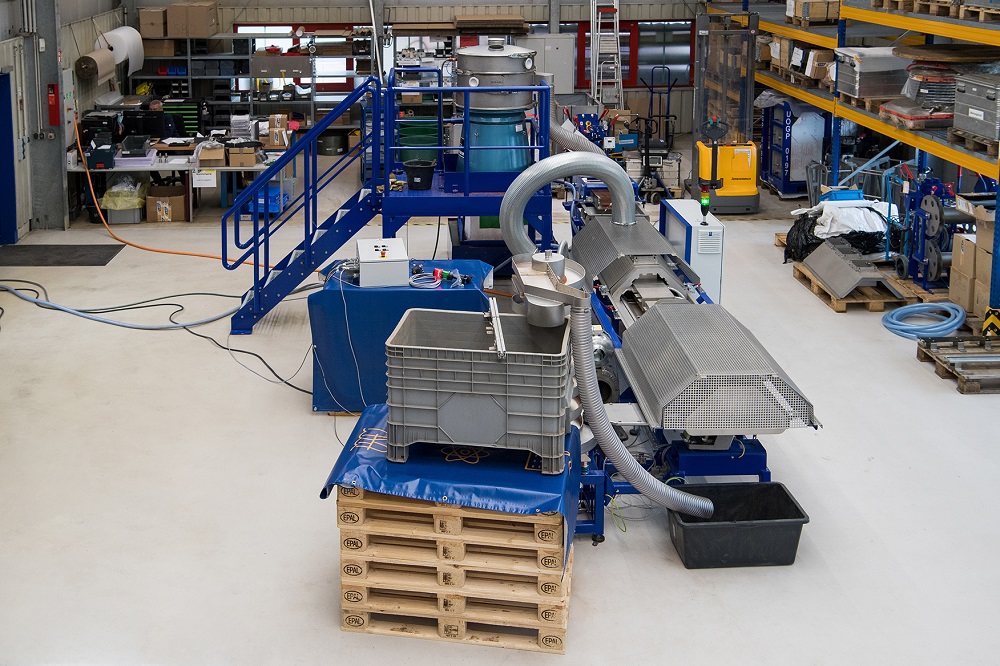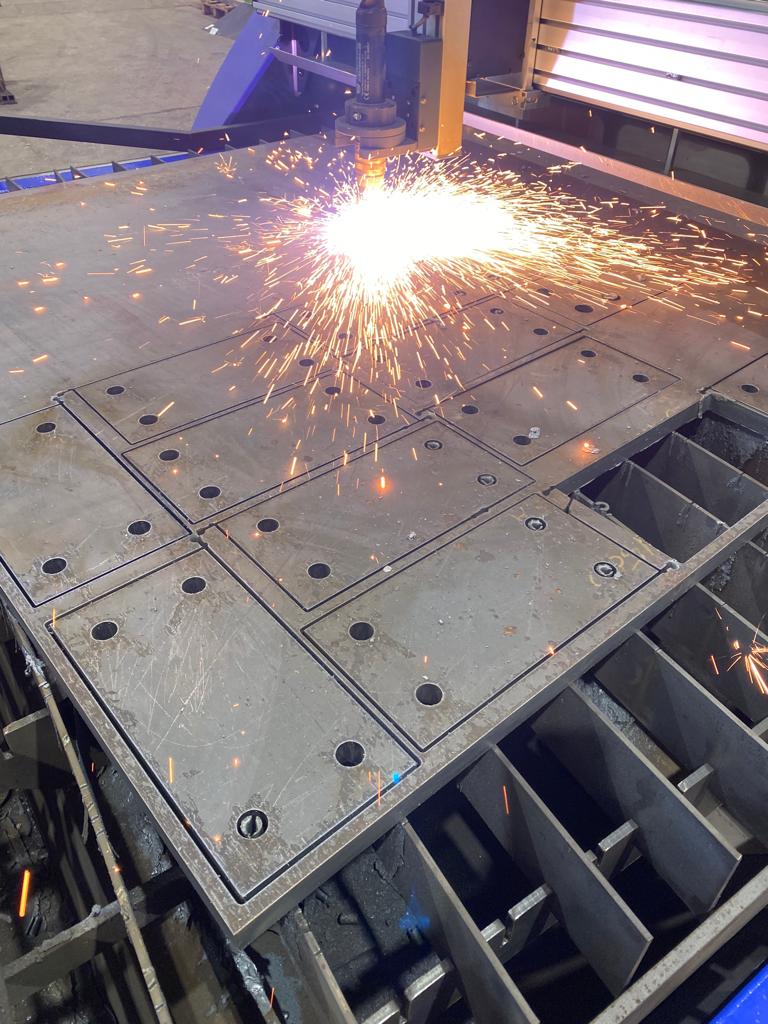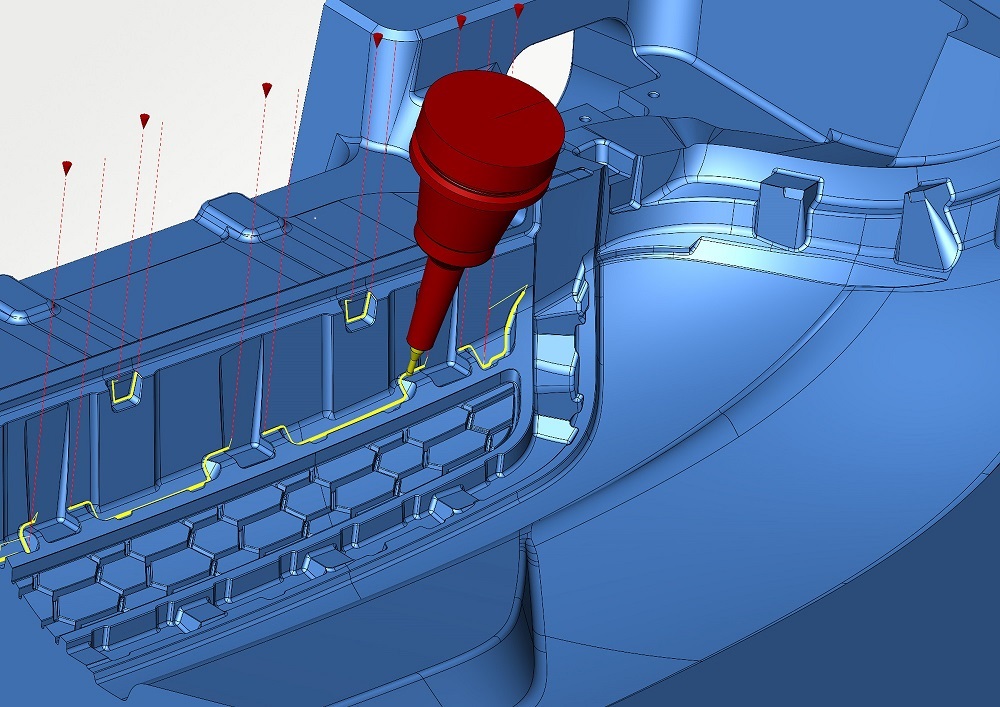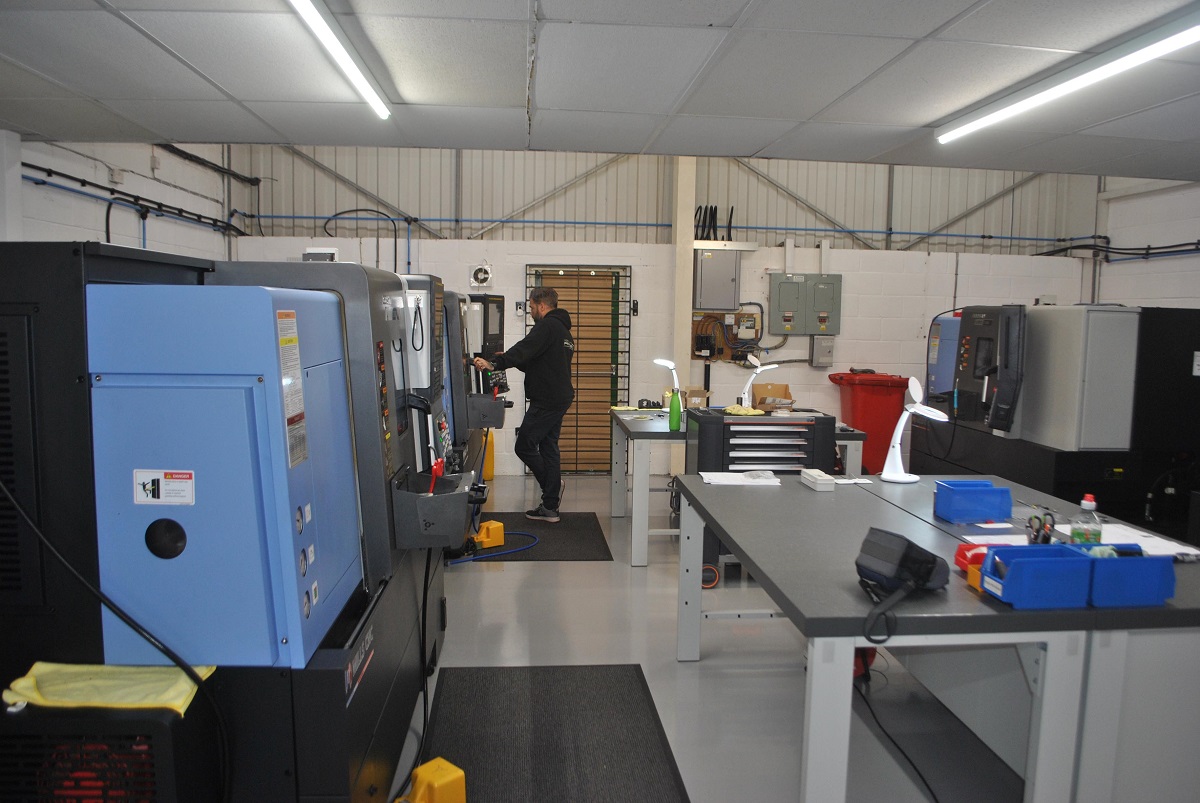Mills CNC, the exclusive distributor of DN Solutions’ (formerly Doosan) and Zayer machine tools in the UK and Ireland, has recently supplied Northants Precision, a subcontract specialist and relatively new business, with its third high-performance Lynx lathe.
The latest arrival, a 6” chuck Lynx 2100, is now in-situ at the company’s 1750 sq ft machine shop facility in Northampton to further improve its already impressive machining capacity and capabilities. The machine will also help meet a significant increase in demand for high-precision machined components from its growing customer base – predominantly in the motorsport sector.
The new Lynx 2100 has taken its place alongside two, previously-acquired Lynx lathes – a Lynx 2100LMB and Lynx 2100LB – purchased by the company in May and December 2021 respectively. The purchased of latter, incidentally, was aided by the Government’s Coronavirus Business Interruption Loan Scheme.
In addition to these three lathes, Northants Precision also has an older Lynx 220LSY equipped with sub-spindle, Y axis and driven-tool capabilities. Together, these four FANUC-controlled lathes, two of which have integrated multi-tasking capabilities, provide Northants Precision with a formidable in-house machining resource, dedicated to the quick-turnaround machining of small, complex and high-precision turned and milled parts.
Parts machined on the Lynx lathes are small, typically round and cylindrical in shape. The lathes hold components securely in position using 5C collet chucks to ensure the high-precision machining of intricate features. Parts includes those for Formula One, rally and supercar chassis, sub-frames, gearboxes, track rod ends and engines. Part volumes vary, from one-offs through to thousands, with tolerances of ±5 µm on some features with super-fine surface finishes. Northants Precision makes parts from difficult-to-machine materials that include heat-treated stainless steels, predominantly 13-8 PH and MP35N, a nickel-cobalt alloy.
Owner and director Daniel Green says: “Lynx lathes are real workhorses; they are flexible and reliable. With their powerful, high-torque spindles, 12-station turrets and impressive rapid rates, they deliver the high part accuracy, repeatability and fast processing speed required when working in the motorsport sector. Furthermore, Lynx lathes are competitively-priced, and we acquired our machines through Mills CNC’s Finance operation enabling us to take advantage of favourable credit and repayment terms. Since being installed, the new machine, like the other Doosans we have out our disposal, hasn’t missed a beat.”
Northants Precision is a company where growth, despite the relative infancy of the business, is on a steep upward trajectory. It’s a remarkable success story that belies its humble beginnings.
Back in August 2020, during the height of the pandemic, Northants Precision was established and operated out of shared, rented premises with one lathe (the Lynx 220LSY), a shadowgraph, a couple of micrometers and not much more. The company had, effectively, one customer on its books and the focus then was on machining a range of high-precision motorsport components as well as specific parts, for this same customer, required for the Government’s ‘Ventilator Challenge’.
“It was tough at the beginning, but I was committed to growing the company,” recalls Green. “With my knowledge and experience of the motorsport sector and its supply chain imperatives, I was convinced that, by investing further in advanced machining technologies and by developing our in-house manufacturing processes and systems, we would be able to capitalise on post-pandemic business opportunities in a structured and systematic way.”
And, so it transpired, admittedly with lots of hard work, sleepless nights and a couple of relocations to boot.
Surviving and growing in the motorsport sector is not easy, especially for a new start-up subcontract company. There are many problems, potential pitfalls and banana skins that businesses must avoid and negotiate to ensure success.
Says Green: “Motorsport is a demanding sector. In addition to supplying high-quality, competitively-priced machined components right first time, every time, and meeting ever-stringent delivery deadlines, it’s important to have highly efficient, effective and reliable software systems in place that help streamline the entire production process and make it easy to record and retrieve pertinent business information.”
To facilitate this, Northants Precision invested in PSL Datatrack’s production control system early on – a strategic decision, as it turned out, that proved instrumental in helping the company achieve ISO 9001 accreditation in double-quick time.
Northants Precision has also relocated twice since formation in 2020. From its original shared rented premises, the company, after eight months of trading, moved to a larger (approximately 800 sq ft) facility in Northampton but, with three machines installed in the machine shop, it proved to be a temporary solution.
“Although a significant step-up from where we were originally, we were still struggling for space in our second facility,” says Green. “With demand for our services growing fast thanks to a number of new customers coming on-board, it became clear that we needed to invest in a fourth machine and that, in turn, meant finding larger premises.”
The company planned and timed the move to its current location to coincide with the arrival of the new Lynx 2100 in September 2022. Northants Precision’s new premises, although providing a much-needed increase in floor space, did require significant work to make it functional. It required the laying and painting of a new floor, as well as new power cabling.
To achieve its production deadlines and minimise downtime, Northants Precision worked closely with Mills CNC to ensure the delivery and installation of the new Lynx 2100 and the three other lathes located at its existing premises, at the new facility.
“Mills did a great job,” states Green. “I think we only had a couple of days’ downtime before the entire move, from start to finish, was complete.”
Investing in new machine tools to cope with the increase in demand for its machining services has resulted in the company increasing its headcount.
“There was just too much to do for one person,” says Green. “So, in January 2022, we recruited an experienced machinist to help take the pressure off me and enable our machines to run longer.”
The company expects to recruit more staff in the near future.
For further information www.millscnc.co.uk






